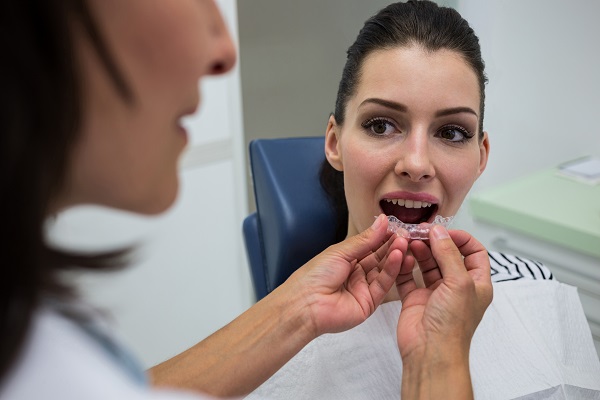
Turuncu Dental Clinic - Antalya, Turkey

Bruxism is a condition that most people are unaware of but can lead to serious dental health problems. This problem is faced by many people and can lead to serious consequences in the long run if the right precautions are not taken.
Bruxism, also known as teeth clenching or teeth grinding, is an involuntary behavior that occurs mostly at night while sleeping. This condition means that the lower and upper jaw teeth are rubbing or clenching together. In the long term, bruxism can cause serious tooth wear, jaw pain, and even headaches.
Since there is no specific cause of bruxism, many factors can lead to this condition. Factors such as stress, anxiety, sleep disorders, alcohol and caffeine consumption can be triggers of bruxism.
Bruxism can lead to serious dental problems in the long run. Problems such as wear on tooth enamel, jaw pain, jaw joint problems and even headaches can be counted among the effects of bruxism. Therefore, it is important to deal with this situation.
If you clench or grind your teeth at night, you will experience pain in your jaw, head and neck area when you wake up in the morning.
In individuals who live with bruxism for a long time, the chewing surfaces of the teeth wear out. Tooth sensitivity, loss of aesthetic beauty, problems in the jaw joint, and loss of function in the chewing muscles are experienced.
For the treatment of teeth grinding, first of all, the pressure on the teeth is reduced with a custom-made mouth guard. Pain caused by teeth grinding is relieved. Then, dental botulinum toxin is applied to prevent teeth clenching.
Dental botulinum toxin is a bacterial toxin that is applied to the chewing muscle in the cheek and has the ability to block neural transmission. It is injected into the muscle.
Dental botulinum toxin does not cause any harm to the individual. It does not affect chewing function. It eliminates tension by providing relaxation in the muscles. The effect of this procedure lasts at least 6-9 months. Dentists can perform the procedure again after this period, when teeth clenching problems occur.
When you come to our clinic for teeth grinding treatment, our physicians examine you and listen to your medical history. Then he makes the necessary guidance.
For the treatment of teeth grinding during sleep, each patient is given specially designed and manufactured tooth protectors. The patient places this special mouth guard or mouth splint (occlusal splints) in his mouth after brushing and flossing before falling asleep at night. These devices prevent damage to the teeth and jaw by distributing the load on the teeth in some areas during night teeth grinding to the entire jaw.
Bruxism (teeth grinding) may be caused by some diseases. These diseases that cause teeth grinding can be listed as: Parkinson's disease, dementia, reflux, epilepsy, night terrors, sleep apnea, attention deficit / hyperactivity disorder ADHD….
For the treatment of Teeth Grinding (Bruxism), you should go to an oral and dental health center and consult an experienced dentist. If teeth grinding has harmed your jaw joints or general body health, you will be referred to the relevant unit.
Teeth grinding caused by periodic stress may disappear on its own. However, if the teeth grinding problem continues for a long time, the underlying cause of bruxism must be investigated and the disease must be treated. Otherwise, teeth grinding may damage the individual's jaw joints, cause headaches and earaches. It may cause vertigo.